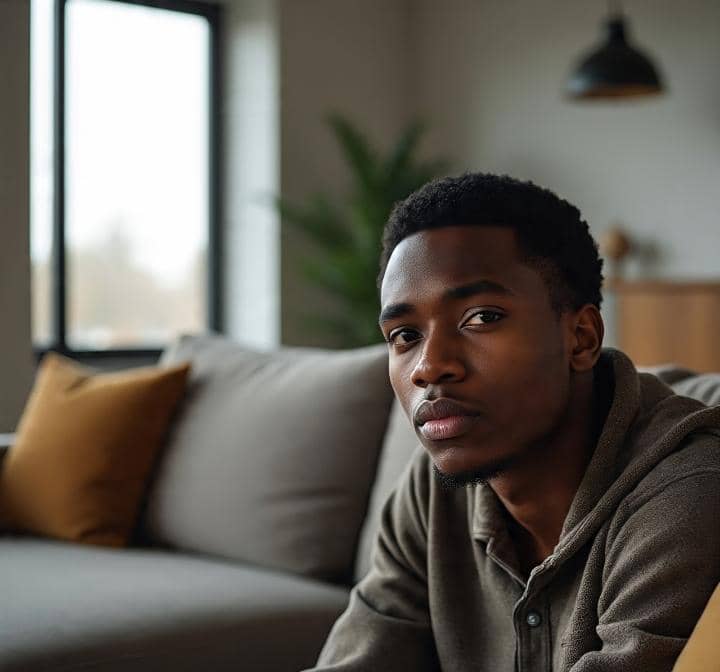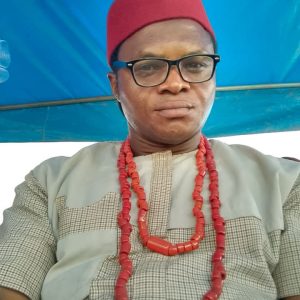IS GEN Z TOO SENSITIVE OR JUST MORE AWARE?

By Ossai Marilyn
In a world that’s constantly shifting under the weight of political unrest, social injustice, climate anxiety, and technological explosion, one generation finds itself both criticized and celebrated: Generation Z.
From social media debates to office chatter, it’s common to hear, “They’re too sensitive,” or “They take everything personally.” But what if this “sensitivity” is a reflection of something more profound? A deeper level of awareness? A refusal to stay silent in the face of harm? A redefinition of what strength actually looks like?
LET’S TAKE A CLOSER LOOK
A Generation Born With the World in Their Hands
Gen Zers didn’t just grow up with the internet – they were raised by it. They didn’t read about injustice in history books alone; they watched it unfold on X, TikTok, and Instagram. From the murder of George Floyd to #EndSARS, from global pandemics to school shootings, they’ve seen the world’s pain up close and in high definition.
This constant exposure has made them highly aware – sometimes painfully so – of the injustices and inequalities baked into society. It’s not that they’re too soft; it’s that they’re too informed to stay silent.
Where past generations may have been conditioned to look away or endure, Gen Z leans in, speaks out, and questions the systems many once feared to challenge.
Mental Health: The Courage to Feel
If there’s one topic Gen Z refuses to ignore, it’s mental health. For too long, emotional well-being was considered a private burden, a sign of weakness, or worse, a taboo. But this generation is flipping the script.
They’re attending therapy, sharing their struggles openly, and pushing for policies that recognize burnout, trauma, depression, and anxiety as real and valid issues, not personal failures.
To those unfamiliar with this openness, it may look like an overreaction. But to Gen Z, it’s survival. It’s healing. It’s setting boundaries in a boundaryless world.
They’re not trying to be fragile – they’re trying to be whole.
Accountability Culture vs. Cancel Culture
One of the most polarizing criticisms Gen Z faces is their involvement in cancel culture. But let’s break that down. At its core, what Gen Z is asking for is accountability, not automatic cancellation.
When public figures, brands, or institutions cause harm, Gen Z doesn’t just scroll past; they speak up. And yes, the tone can be harsh. The internet doesn’t leave much room for nuance. But their intentions, in many cases, stem from a place of justice: We will no longer glorify harm.
Are there cases where the outrage is misplaced or disproportionate? Certainly. But is this new wave of accountability entirely bad? Absolutely not. Gen Z is reminding the world that words matter, actions have consequences, and no one is too big to listen.
New Language of Care and Inclusion
Gen Z communicates differently – emotionally, socially, and politically. They’re redefining how we speak about gender, race, neurodiversity, trauma, and privilege. Terms like “triggered,” “safe space,” and “micro-aggression” are not weapons; they’re tools of self-awareness and empathy.
To the uninitiated, this language may feel excessive. But to Gen Z, it’s a way of protecting the dignity of those who’ve historically been silenced or sidelined. It’s not about being offended by everything; it’s about being intentional with everything.
They’re not demanding perfection. They’re demanding respect.
Bridging the Generational Gap
The criticism of Gen Z being “too sensitive” often comes from older generations who grew up with a very different rulebook. In many African homes, for example, showing emotion was mistaken for weakness. Many were taught to “endure silently,” “be strong,” and “never question elders.”
But now, we have a generation that’s not only asking questions – they’re refusing to inherit pain as tradition.
This doesn’t mean Gen Z is always right. Every generation has its blind spots. But the goal should not be to silence them; it should be to listen, guide, and grow together.
Imagine what could happen if we combined Gen Z’s awareness and passion with the wisdom and lived experiences of older generations. That’s not chaos. That’s power.
Final Thoughts: The Strength in Sensitivity
So, are Gen Zers too sensitive?
Maybe.
But maybe the world needs that sensitivity right now. Maybe what looks like weakness is a sign of emotional intelligence, cultural accountability, and a refusal to normalize harm.
What if they’re not soft… just soft-hearted enough to care, and brave enough to demand a better world?
And isn’t that the kind of generation we’ve always prayed for?




